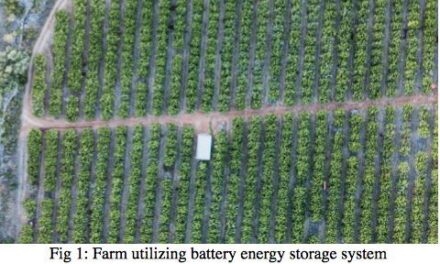Vehicle-to-grid (V2G) demonstrator project, E-Flex, has revealed findings that over four in five (86 per cent) fleet managers plan to deploy electric vehicles (EVs) within the next five years. The research, conducted by Opinium in partnership with E-Flex, surveyed 500 fleet managers across the UK on their attitudes to fleet electrification.

Whilst over a quarter (27 per cent) of fleet managers are already deploying EVs, almost three-quarters (72 per cent) of respondents said they are concerned about rising energy costs. Over half (55 per cent) cited the high initial purchase price as the main barrier to EV adoption, with almost half (48 per cent) identifying worries about battery life. Despite these concerns, over half (53 per cent) agree that V2G technology could help with the transition to electric fleets.
Most EVs are fitted with uni-directional chargers, meaning that when a battery is charged, the power is stored until it is used. This could prove an inefficient model for fleets deploying EVs at scale in terms of cost and energy consumption unless the charge times and charge rates are smartly managed.
Over half (54 per cent) of fleet managers recognise that V2G could reduce their energy costs by enabling bi-directional energy transfers that turn EV batteries into energy sources. More than two in five (43 per cent) agree that additional revenue could be generated from sales of unused power back to the grid.
More than three quarters of fleet managers (79 per cent) said meeting their sustainability and environmental targets is a priority. With the UK Government’s Road to Zero current 2040 deadline for all new cars and vans to be effectively zero emission, any organisation running a fleet of vehicles needs to consider electrification as part of its strategy.
EV deployment is expected to change dramatically over the next five years, with the majority (86 per cent) of fleet managers planning to roll-out EVs to reduce business wide energy usage. Yet, senior decision-makers working across other business units harbour scepticism about EVs.
More than two thirds of fleet managers say that this scepticism is unlikely to be overcome without a financial incentive. In fact, as many as two-thirds (67 per cent) argue that being able to offer these is essential for EV rollout to occur.
V2G technology represents a means of surmounting these challenges while offering commercial benefits – but also as a new technological solution, needs to prove its value in the real world. More than half of fleet managers (53 per cent) agree that V2G could support the grid at peak times, ensuring that mass adoption of EVs does not put unmanageable strain on energy resources.
Less than one in ten (nine per cent) fleet managers are concerned about cybersecurity. As V2G is rolled out and the reliance on digital infrastructure grows, maintaining adequate cyber defences will become increasingly important, requiring increasing collaboration between fleet and IT managers.





